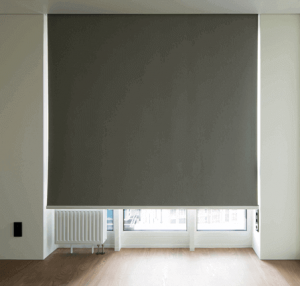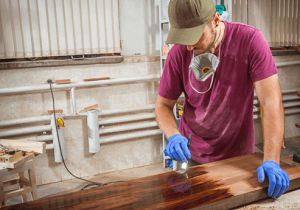Muhtemelen, mobilyanızı satın almak için yüklü miktarda para yatırdınız. Ya da belki de sevdiğiniz birinden antika mobilyalar miras aldınız. İster parasal ister manevi değerle ilgilenin, şüphesiz mobilyalarınızı olabildiğince uzun yıllar mükemmel durumda tutmak istersiniz. Kanepeler, sandalyeler, yataklar ve masalar gibi şeyler çok fazla yıpranır ve yıpranır, ancak uygun bakımla yırtılmaları ve yırtılmaları önleyebilir, metal mobilyaların kararmasını veya paslanmasını önleyebilir ve diğer hasar türlerini önleyebilirsiniz.
Güvenilir Bahis Siteleri
En iyi casino siteleri Güneşin en sevdiğiniz sandalyenizi ağartmasını önlemek için karartma perdeleri
takmaktanDöşemeyi doğru şekilde nasıl temizleyeceğinizi öğrenmeye kadar, mobilyalarınızdan en iyi şekilde yararlandığınızdan emin olmak için yapabileceğiniz pek çok şey vardır. Mobilyalarınızın kararmamasını nasıl sağlayacağınızı öğrenmek ve mobilyalarınızın daha uzun süre dayanmasını sağlayacak diğer ipuçlarını ortaya çıkarmak için okumaya devam edin.
Panjurlarla Güneşi Engelleyin

Panjurlarla Güneşi Engelleyin
Odayı karartan panjurlar, yalnızca gece vardiyasında çalışan insanların gün boyunca biraz uyumalarına yardımcı olmak için iyi değildir. Ayrıca döşemeli mobilyalarınıza, zeminlerinize ve daha fazlasına zarar verebilecek zararlı UV ışınlarını da engellerler. Direkt güneş ışığı parlak renklerin zamanla solmasına neden olur. Ayrıca ahşabı aydınlatabilir veya koyulaştırabilir. Meydana gelen renk değişikliği türü ahşabın türüne bağlıdır.
Mobilyalarınızı güneşten korumak, ömrünü uzatmanın en iyi yollarından biridir. Mobilyalarınızı doğrudan güneş ışığından uzağa yerleştirmek bir seçenek değilse, karartma panjurları veya güneşlikler takmak bir sonraki en iyi seçenektir. Renkli cam filmleri de işe yarar ve görüşünüzden ödün vermeden mobilyalarınızı korumanıza olanak tanır.
Dikkatli Hareket Edin
İster ülke çapında bir taşıma için eşyalarını yüklüyor ol, ister sadece kanepeni odanın diğer tarafına taşımayı düşün, mobilyalarını taşırken dikkatli ol. Asla itmeyin veya sürüklemeyin. Zeminlerinizi çizmenin yanı sıra, bunu yapmak mobilyalarınıza ciddi şekilde zarar verebilir. İkili koltuklar ve büyük boy sandalyeler gibi ağır parçaları taşırken, birisinin onları kaldırmanıza ve taşımanıza yardım etmesini sağlayın.
Mobilya taşıma kayışlarının kullanılması da yardımcı olur. Ağır nesneleri kaldırmayı ve sırtınızdaki yükün bir kısmını almayı kolaylaştırırlar. Mobilyalarınızı odanın başka bir yerine veya ülke genelinde taşımanız fark etmez. Nasıl düzgün bir şekilde hareket ettirileceğini bilmek, hem hasar hem de yaralanmalardan kaçınmanın en iyi yoludur.
Vidaları Düzenli Olarak Kontrol Edin ve Sıkın
Çoğu zaman gözden kaçırılsa da, bağlantı elemanlarının kontrol edilmesi ve sıkılması mobilyalarınızın bakımının ayrılmaz bir parçasıdır. Sık kullanımda mobilyalarınızdaki derzler gevşeyebilir. Bir sandalye, kitaplık, masa veya başka bir mobilya parçasının sallandığını fark ederseniz, tamir etme şansınız olana kadar kullanmayı bırakın. Ve her şey sağlam ve güvenli görünse bile, bir tornavida alıp bu vidaların iyi ve sıkı olduğundan emin olmaktan asla zarar gelmez.
Donanımı Lehçe

Donanımı Lehçe
Mobilyanızın metal donanımı varsa, kararmasını önlemenin tek yolu parlatmaktır. Yine de herhangi bir cila kullanmamalısın. Korozyona neden olabileceğinden, amonyak içermeyen bir ürün seçtiğinizden emin olun. En iyi seçenek, kiri ve kalıntıları metale zarar vermeden çıkaracak hafif bir aşındırıcı içeren bir ciladır.
Cilalamadan önce donanımı çıkarın veya mobilyanın geri kalanını kaplamak için maskeleme bandı kullanın. Metal için harika olan cilalar, ahşap ve diğer yüzeylerde ciddi hasara neden olabilir, bu nedenle donanımı cilalarken parçanın geri kalanını korumak için kesinlikle zaman ayırmaya değer.
Temiz tut
Mobilyalarınızı düzenli olarak temizlemek, tozunu almak ve süpürmek, görünümünü korur. Bunu yapmak ayrıca toz parçacıklarının birikmesini ve döşemenin solgun görünmesini engeller. Dökülenleri temizleyin ve sertleşmelerini önlemek için lekelere mümkün olan en kısa sürede müdahale edin.
Mobilya temizleyicisi için alışveriş yaparken, iş için doğru ürünleri aldığınızdan emin olun. Çok amaçlı temizleyicilerinizi, çeşitli mobilya türleri için özel olarak üretilmiş ürünlerle değiştirin. Döşemeye, ahşaba ve metale zarar verebileceklerinden mümkün olduğunca sert kimyasallardan kaçının.
Yeniden Boyayın veya Tamamlayın

Mobilyalarınız hala yapısal olarak sağlamsa ancak yaşını göstermeye başladıysa, yeniden boyamak veya cilalamak mükemmel bir çözüm olabilir . Boya, leke veya vernik, eski bir mobilya parçasına yeni bir soluk getirebilir. Ayrıca yüzeyi korur ve parçanın daha fazla zarar görmesini önler. Sığ çizikleri biraz vernik veya leke ile de gizleyebilirsiniz.
Su Lekelerinden Koruyun
Su lekeleri, mobilyalarınızın en büyük düşmanlarından biridir. Yüzeyleri su halkalarından korumak için her zaman bardak altlıkları kullanıldığından emin olarak bunları önleyin. Ve dökülen sıvıları hemen temizleyin. Paslanmaya ve kararmaya neden olabileceğinden, metal donanım üzerindeki dökülmelere ve damlamalara da dikkat edin.
Ucuz Şeyleri Atla
Mobilyalarınızdan en iyi şekilde yararlanmak, akıllı bir yatırım yapmakla başlar. Yeni mobilya için alışveriş yaparken, en ucuz seçeneği tercih etmek inkar edilemez bir şekilde size önceden biraz para kazandıracaktır. Ancak, yatırımınız hızla boşa gidecek ve kendinizi istediğinizden çok daha erken bir değişim için alışveriş yaparken bulacaksınız. Yüksek kaliteli mobilyalara daha fazla para harcamak, daha uzun süre dayanacak ve ailenize yıllarca kullanım sağlayacak bir şeye yatırım yapmak anlamına gelir.
Mobilya temizleyici, boya, vernik veya leke için alışveriş yaparken de ucuza gitmeyin. Her zaman amacınıza uygun olarak üretilmiş ürünleri seçin ve güvenilir markalara bağlı kalın. Mükemmel sonuçlar verecek bir şey elde etmek için birkaç dolar daha harcamaya değer.
Çözüm
Yukarıda listelenen yönergeleri izleyerek mobilyalarınızın yeni görünmesini sağlayın ve kararmayı ve diğer hasar türlerini önleyin. İster yepyeni bir mobilyayı korumaya, ister bir antikanın ömrünü uzatmaya çalışıyor olun, uygun bakım tekniklerini anlamak, mobilyanızdan en iyi şekilde yararlanmanın en iyi yoludur.
0 Comments